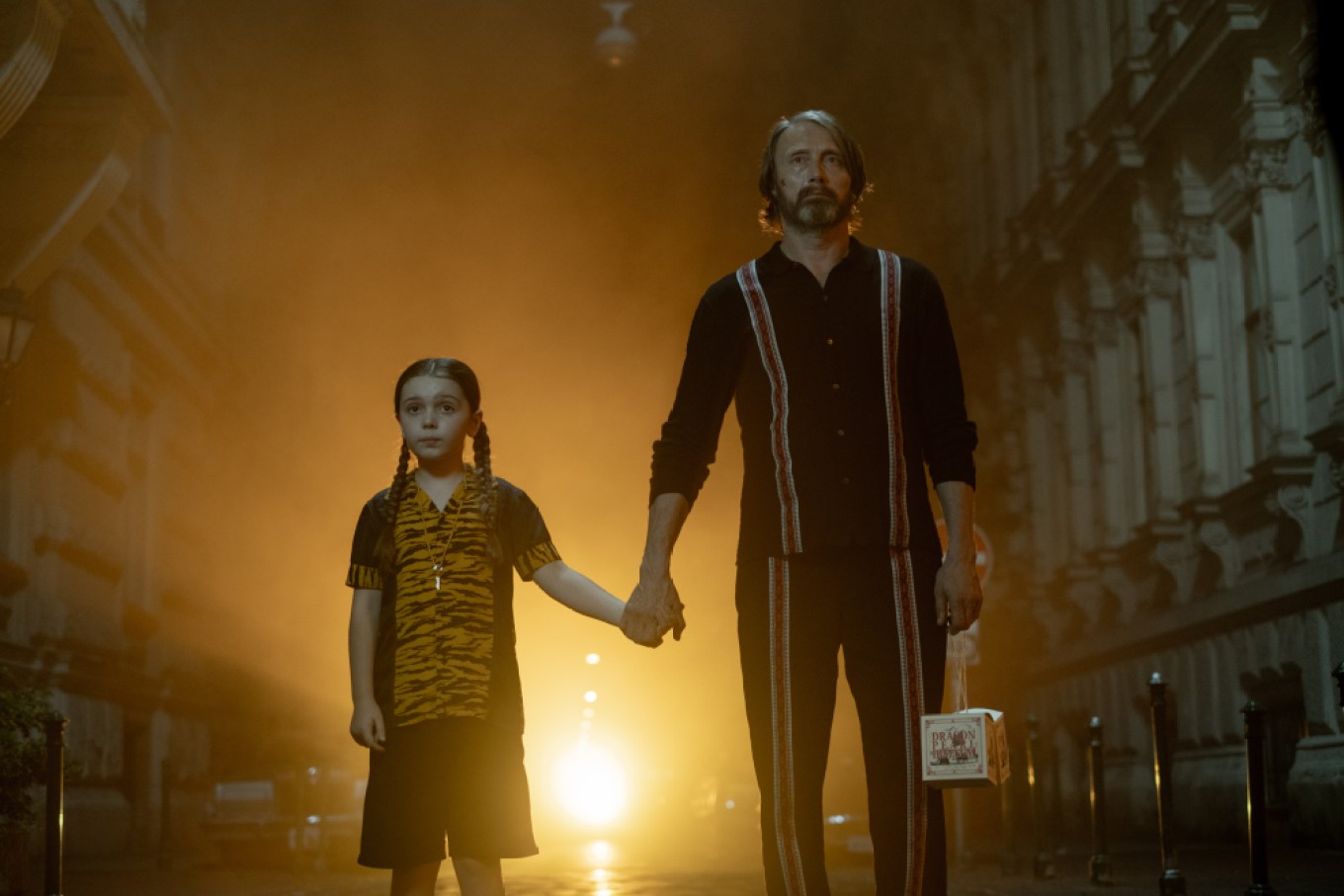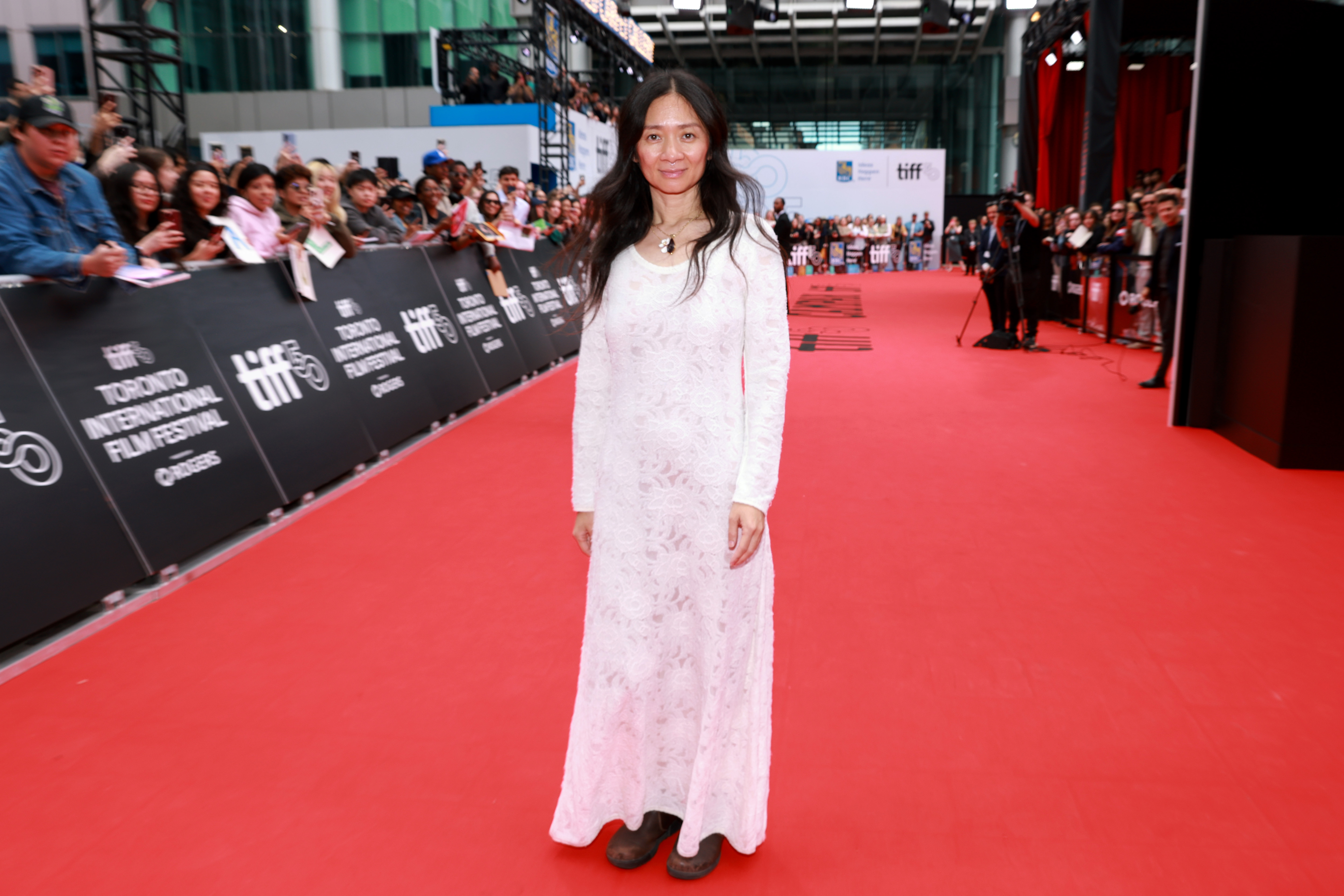If nothing else, it’s always wonderful to see a new Steven Soderbergh movie with some actual life in its bones. After the airless spy games of “Black Bag,” the postmortem gimmickry of “Presence,” and the limp gyrations of “Magic Mike’s Last Dance,” the prolific filmmaker’s run of small and increasingly sterile genre exercises was starting to feel like a waste of his un-retirement. I never would have guessed that the answer to Soderbergh’s listlessness might be an 86-year-old man, but Ian McKellen — delivering what’s easily his most essential screen performance since “The Lord of the Rings” — is so full of vim and vigor in “The Christophers” that he threatens to revitalize his director by osmosis.
McKellen stars as the fading artist formerly known as Julian Sklar, a once-revered painter who peaked in the ’90s with a series of portraits of his ex-lover — the titular Christopher — before losing his luster, becoming the Simon Cowell of a ludicrous reality competition show, and finding himself on the wrong side of “cancel culture” for unspecified reasons. Now supposedly dying from some terminal illness, Julian has gone total hermit mode inside of his cluttered London apartment, where the walls are festooned with the relics of his success and the backrooms are a junk pile of painful memories.
Painful memories like his relationship with Christopher, which left Julian rich but scarred; his work began to suffer along with their romance, to the point that the last eight pieces of his signature series have remained unfinished in a dusty corner of his home for the last 30 years. His grubby adult kids (James Corden and Jessica Gunning) — still stinging from the casual cruelty he inflicted upon them as children, and well-aware that Julian’s withholding nature will extend to their inheritance — would sure love it if they found a previously unknown trove of three million dollar paintings among their father’s stuff when he died, and so they hire the best art forger in Britain to apply for an assistant job in the hopes that she can nick the unfinished “Christophers” and complete them with Julian’s original materials (thus making it impossible to identify them as fakes).
Would that it were so simple. Julian is no easy mark, and Lori (a smart, sly, and deeply felt Michaela Cole) has reasons for wanting to fuck him over that have nothing to do with money. The competing agendas of Ed Solomon’s script set the stage for a fun and prickly chamber piece that’s hiding a dozen booby traps in every room, and Soderbergh is so excited about the prospect of setting them off that his camera literally shakes the moment he steps foot into the tomb-like apartment where most of this story takes place, as if the director — again doing his own cinematography under the guise of “Peter Andrews” — was getting a contact high just from being that close to a vintage Ian McKellen performance.
The 30-minute sparring match that unfolds from there is one of the great sequences of Soderbergh’s post-retirement career. It starts with Julian recording a rapid-fire series of Cameo-like internet videos for $149 a pop, and scatters around the duplex from there until what’s left of his legacy is placed into a firepit in the backyard. In between, both the flamboyant painter and the business-like job applicant who comes to his door lay all of their cards on the table, as what seems to be the premise for another Soderbergh heist movie instead gives way to a broader and frequently withering — sometimes even Pinter-esque — pas de deux about all of the things that people take from each other. And, in a way, the things they give each other in return.
Not that Julian seems like he’s ever given someone more than a headache or a broken heart. A rascally old coot who’s lost everything besides his ability to piss people off (a talent that he nurtures like a virtue), Julian knows that he fell off as an artist, but his growing irrelevance has been difficult for him to reconcile with the increasing smallness of his life; the world may have moved on, but he’s still the center of his own universe.
In a performance as layered as the unfinished canvases that Julian keeps in storage, McKellen inhabits the character as a bloody prick who takes pleasure in his cutting wit, but also endows him — absent the slightest trace of sentimentality — with the wounded resignation of a man who only hurts people because he doesn’t know how to help them. He bared his soul to the world with the “Christophers,” possibly at Christopher’s expense, and the experience left him so exposed that he felt like he had to spend the rest of his life on the attack. (Details are few and far between in a movie that doesn’t make a lot of room for exposition, but there are telling references to a public stunt where Julian gave a middle finger to the art community by selling his work to people on the street.)
In Lori, Julian finds someone who knows how to put him back on defense. The rare forger capable of perfectly imitating Julian’s style, but also an art burnout who’s lost faith in her ability to produce meaningful work of her own, Lori offers Julian a most unexpected kind of mirror. Young, Black, poly, and so petrified of vulnerability that she handles every interaction in a cool-headed monotone, Lori is the living emblem of who an old white artist might blame for their irrelevance, and yet — for reasons that don’t become fully clear until the end of the film, via a clumsy flashback that’s only redeemed by the ambiguity it still leaves behind — she and Julian are as tightly intertwined as a needle sewn into a canvas.
It can be riveting to watch Lori and Julian try to make sense of the more abstract connections between them, and “The Christophers” is at its best as these characters use the kids’ forgery scheme as a pretext to map their own understanding to art and to each other. The movie seldom leaves the musty interior of Julian’s apartment, but the dynamic between its dueling painters is a kind of spectacle unto itself, and Soderbergh’s loose and reactive cinematography pulses with the energy that’s been missing from the locked-off angularity of his recent work.
Yes, the movie could still be mounted as a piece of theater without much need for adaptation, and yes, it still feels more like Soderbergh is testing his own talent for efficiency than it does like he’s trying to make a meaningful piece of pop art, but “The Christophers” at least has an answer for that. Real or fake, finished or not, a genre exercise or a full-hearted statement of purpose, the things we create have an impact on the world that no market could ever be able to measure. And, for better or worse, the same is true of the people who are brave enough to create them.
Grade: B
“The Christophers” premiered at the 2025 Toronto International Film Festival. It is currently seeking U.S. distribution.
Want to stay up to date on IndieWire’s film reviews and critical thoughts? Subscribe here to our newly launched newsletter, In Review by David Ehrlich, in which our Chief Film Critic and Head Reviews Editor rounds up the best new reviews and streaming picks along with some exclusive musings — all only available to subscribers.



